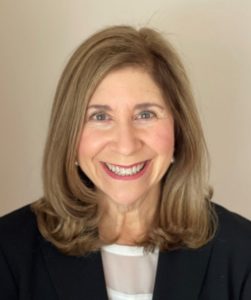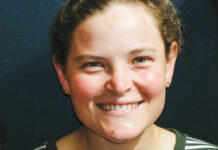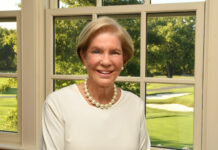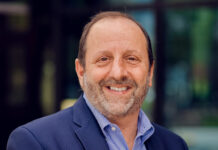In recent years, the amount of available nurses has been on the decline. By the end of the 2022, the American Nurses Association says there will be a need for more than 3.4 million nurses in the medical field.

One of the other largest contributing factors to this shortage is the lack of clinical sites to work in and instructors available to teach students interested in entering nursing school, according to Dr. Lisa Rowen. She aims to address this problem through the University of Maryland Medical System’s Academy of Clinical Essentials (ACE) initiative, which partners the school’s nursing students with established nurses in order to gain hands-on experience at local hospitals.
Certified in Executive Nursing Practice as well as Advanced Emergenetics Training, Dr. Rowen, 64, earned a master’s in nursing administration from University of Maryland Baltimore and a doctorate in nursing science from Johns Hopkins University. She is presently senior vice president and chief nurse executive of the University of Maryland Medical System; she is also a professor at the University of Maryland School of Nursing. She has published more than 75 articles on patient safety, teamwork and communication, leadership, health-related issues, and best practice standards.
It was while working with prospective students that Dr. Rowen noticed something concerning: Despite the ongoing nursing shortage in the United States, and the fact that nursing schools are not wanting for qualified applicants, schools aren’t able to accept many of these applicants because they do not have enough resources to teach them all.
“By having hospital nurses serve as clinical instructors, it solves a lot of issues, and we can find and fund clinical instructors for the school of nursing,” Rowen said. “Nursing students get a great education from our nurses because they are actually practicing at the bedside, they have a passion for teaching, and they love having the students work with them.”
The ACE initiative, she says, is different from standard nursing school curricula because of its more hands-on nature. Students commit to one 12-hour shift at the hospital with their mentoring nurse a week, experiencing a full day of nursing work.
“It’s very meaningful to be at the bedside and learn there with a human patient,” Dr. Rowen said. “Being in school and having classroom instruction and simulation is still important — rigorous classroom instruction is really critical for a nursing student. But placing them with nurses at the bedside really rounds out their education in a vibrant way where they can learn in a realistic and immersive environment.”
Following a successful test class of seven cohorts in the spring of 2022, the ACE initiative is welcoming its first official class of 32 this fall.
Since the University of Maryland Medical System put out a press release about the program, Dr. Rowen says she has been contacted by hospitals and nursing centers in other states interested in replicating the initiative for their own nursing students, something she is in full support of. She notes that participating nursing students have also been enthusiastic about the experience.
A longtime resident of Pikesville, Dr. Rowen first became interested in becoming a nurse while studying abroad in Europe. She has a Bachelor of Arts in art history, but realized after about half a year overseas that she wanted to work with people instead of inanimate objects like paintings and sculptures.
Four decades later, she considers that shift to be one of the best decisions of her life.
She does not belong to any Jewish organizations herself, but her daughters are graduates of Beth Tfiloh Dahan Community School, and she finds that some of the values that the school abides by align with those she upholds as a nurse. The principle of derech eretz, the Jewish virtue of treating others with kindness and respect, is one of them.
“Nursing as a profession is really about honoring your patients. We’re holding them in our hands at the most vulnerable moments of their lives,” she explained. “How we treat them, how we respect and honor them is key. It’s an intertwined way of living.”







